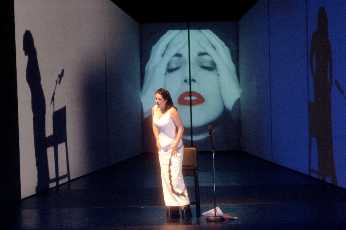Joseph Martin Kraus - Proserpina (2006)
Joseph Martin Kraus - Proserpina (2006)

1. Part I 1:22:54 2. Part II 54:06 Alexandra Coku – Proserpina Johanna Stojkovic – Ceres Silvia Weiss – Cyane Johannes Chum – Atis Nikolay Borchev – Pluto Thomas Laske – Jupiter Thomas Jakobs – Mercurius Chorus Musicus Köln Das Neue Orchester Christoph Spering - conductor Rokokotheater Schwetzingen. Sunday 30 April 2006
The Schwetzingen Festival, which has hit a few artistic and fiscal rough patches in recent years, seems to be nearing a return to form with this summer's intriguing confluence of chamber rarities, new operas and recitals by top-notch classical artists. The new production of Proserpina - a 1781 opera, written by Joseph Martin Kraus, known as "the Swedish Mozart" - featured Das Neue Orchester conducted by Christoph Spering. ---operanews.com
It was at the premiere of his opera Proserpin that Gustav III King of Sweden transformed the life and career of composer Joseph Martin Kraus. The Swedish Academy had commissioned Proserpin in June 1780 and after the work's first performance in the Royal Pleasure Palace Ulrichsthal, Gustav III spoke at length with Kraus, complimenting him lavishly on his abilities as a composer and dramaticist. On the strength of Proserpin, Gustav III made Kraus his court composer and paid for his grand tour of Europe.
Proserpin is a two-hour opera in one continuous act flowing seamlessly through ten arias, 14 choral movements, and 20 often fully scored recitatives. Based on the classical myth of life and death and the beneficence of the gods, court poet Johan Henrik Kellgren's libretto includes parts for the gods of antiquity, including Jupiter, Pluto, Ceres and Proserpin, plus a second pair of newly invented immortal lovers to set the plot in motion and a Greek chorus of nymphs, bacchantes, and Sicilians. Kellgren's plot is essentially an expansion of the myth, but with a heavy emphasis on godly beneficence. Kraus' music, scored for a lush late eighteenth century orchestra, is thoroughly Sturm und Drang in style of the time, but more lyrical, more expressive, and with an elevated sense of grandeur, plus a supreme sense of drama and balance. Although the characters themselves are more types than individuals, Kraus' music sings of timeless concerns and universal emotions. Proserpin is on a level with the best operas of Gluck and Haydn and the late operas of Mozart. ---James Leonard, allmusic.com
download (mp3 @VBR kbs):








